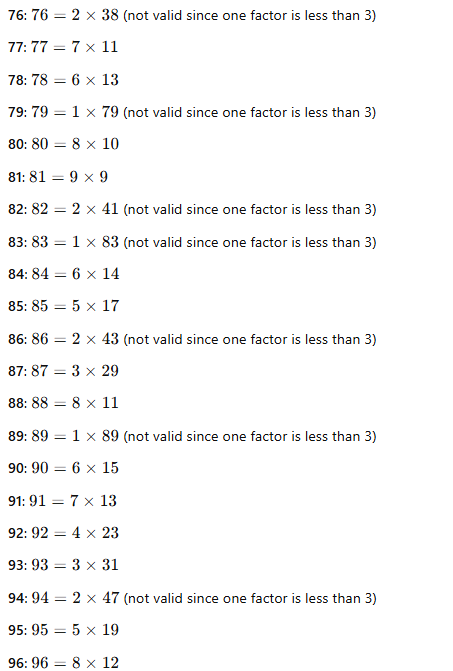Here, let me give this problem a shot.
First, let's try to simplify this problem a bit. We can use Simon's Favorite Factoring Trick.
Let's factor the right side a bit for n. We get
\(n = ab + 2a + 3b \\ n = a(b + 2) + 3b \)
Now, since we want b to be factored as well, let's add 6 to both sides. This will come in handy later.
We get
\( n + 6 = a(b + 2) + 3(b + 2) \\ n +6 = (a + 3)(b + 2)\)
Now, this problem has transformed for numbers that match the conditions
\(76\leq (a+3)(b+2) \leq 96\)
The only numbers that don;t satsify these conditions are numbers with only two factors and one is less than 3. Thus, we can calculate each number. Here, I did it for you! :)

Thus, since there are a total of 21 numbers and 7 are not valid, we have 21 - 7 = 14 as our final answer.
So 14 should be the answer. I'm not confident on the answer, I might have errored a bit. However, I think it's CLOSE to the right answer. Maybe 12 or 15, but 14 should be right.
Thanks! :)